Do you have a question about JRI services?
JRI recently completed data collection for the first ever randomized control trial (RCT) of the Attachment, Regulation, and Competency (ARC) framework. This study examines the effectiveness of 24 sessions of ARC treatment versus treatment as usual for a range of clinical and functional child and caregiver outcomes in community based mental health clinics across metro Boston. In addition to expanding the empirical evidence base for utility of ARC in the treatment of complex trauma in children, this study will also examine the impact of ARC on several proposed change treatment mechanisms. Recruitment for this study is now closed and data analysis is ongoing. For currently available research on the effectiveness of the ARC framework, please visit our publications page.
ARC RCT COVID19 Pandemic Impact Ancillary Study
The COVID19 pandemic is an unprecedented society level stressor that is impacting everyone in our community. It is important to understand, both for short and long term planning for how to mobilize and utilize services, who is being impacted the most and in what ways. Through this ancillary research study we are using an online survey instrument and several brief psychometric instruments, to better understand how the COVID19 crisis is impacting caregivers of children and youth who are enrolled in the ARC RCT, as well as clinical staff at our participating community based mental health clinics. The primary aims of the study are to explore how the COVID-19 crisis is impacting both families seeking mental health treatment and the people providing the mental health treatment. We will examine: (1) The degree to which each family is being impacted by the COVID-19 pandemic, including impact on daily family life, financial impact, food security, physical health, and access to mental health services; (2) For caregivers - the association between the degree of impact of the COVID-19 crisis and caregiver perceived parenting stress, as well as caregiver distress and mental health; (3) The association between the degree of impact of the COVID-19 crisis and child distress; and (4) The interaction between prior risk factors and mental health indicators (e.g., cumulative trauma history, severity of child PTSD symptoms, caregiver parenting stress, and caregiver distress) and impact of the COVID-19 crisis on child and caregiver stress and distress. For mental health clinicians, we are examining the degree of impact of the COVID19 pandemic on each individual, as well as changes in mental health practices and impact on provision of services (i.e. issues related to the transition to telehealth).
Principal Investigator: Hilary Hodgdon, Ph.D.
Co-Investigators: Kathryn McCarthy, Ph.D., Margaret Blaustein, Ph.D., Kristine Kinniburgh, LICSW




